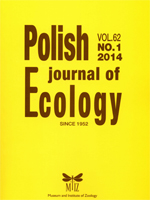Climate change scenarios suggest that plants will be exposed to increasing levels of ultraviolet radiation in the future. The dove tree, Davidia involucrata Bill (Davidiaceae) is a rare and endangered tree species in China. Its distribution is predicted to become more montane as the climate warms, exposing it to higher levels of UV-B and different soil conditions. We compared the effects of glasshouse ambient (7.08 uW cm-2) and increased (13.93 uW cm-2) UV-B on survivorship, secondary metabolites indicative of radiation damage, and putative defensive responses of Davidia involucrata saplings growing under current and increased nitrogen conditions (5 and 25 g m-2 a-1 N). Mortalities were higher among plants exposed to increased UV-B, but only in soils with high supplementary nitrogen. Increases in compounds associated with defense against radiation were more frequently recorded under high supplementary nitrogen conditions. This rare and localised plant is highly sensitive to elevated UV-B when growing in high nitrogen soils, a combination that is likely to increase in the summer.
How to translate text using browser tools
1 March 2014
Responses to Uv-B Exposure by Saplings of the Relict Species Davidia involucrata Bill are Modified by Soil Nitrogen Availability
Yan Li,
Ju Gao,
Lushui Zhang,
Zhixian Su
ACCESS THE FULL ARTICLE

Polish Journal of Ecology
Vol. 62 • No. 1
March 2014
Vol. 62 • No. 1
March 2014
antioxidants
Dove tree
MDA
praline
soil nutrition
UV-B radiation




